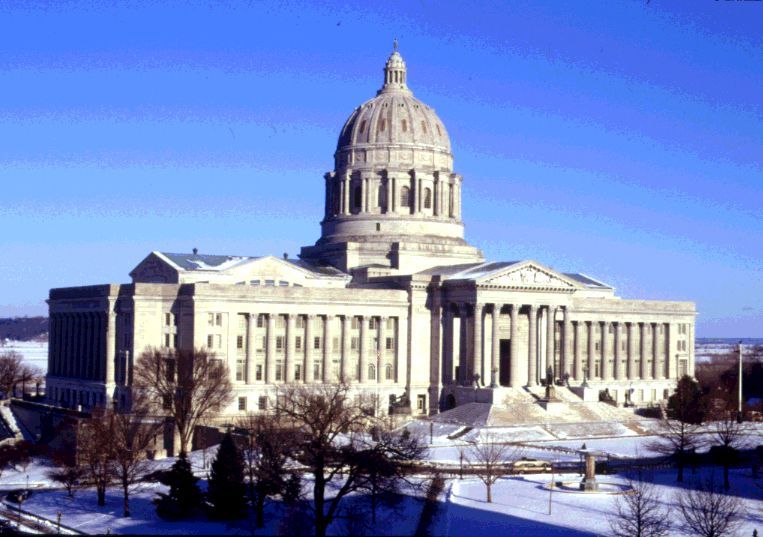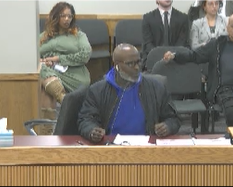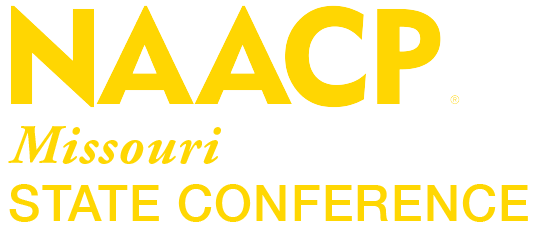NEW PHASE IN LITIGATION BY THE NAACP TO PUT LIMITS ON GOVERNOR’S ABILITY TO CALL EXTRAORDINARY SESSIONS
Jefferson City, Missouri — The Missouri State Conference of the NAACP and citizen plaintiffs Tracy Wilson-Kleekamp and Pat Jones-Macklin are pushing forward with their litigation to enforce the Constitutional requirements for calling extraordinary sessions of the legislature. This is part of the national movement by civil rights organizations to combat gerrymandering and political overreach through state constitutions.
Trial is scheduled for December 15, 2025 at 1:30pm. Today the Court held a case status hearing at which the NAACP requested an expedited briefing schedule and trial date before the end of the year. The litigation is one of at least four cases currently challenging the legislation passed during the Second Extraordinary Session of the General Assembly.
The Court recently denied the NAACP of Missouri’s request for injunctive relief as the extraordinary session was concluded before the decision was made. The failure to reach a decision prior to the legislature adjourning for the year was due in large part to the Attorney General’s requests for delays and filing of procedural motions. The denial of the motions clears the way for setting a trial date.
“We’re witnessing a national pattern where state governments manipulate the rules of democracy to entrench power and silence voters,” said Nimrod Chapel, Jr., President of the Missouri State Conference of the NAACP and lead attorney on the case. “Our Constitution is clear: extraordinary power must meet extraordinary need — not political convenience.”
A New Civil Rights Strategy: State Constitutions as Shields Against Gerrymandering
The litigation challenges Governor Mike Kehoe’s use of executive power to call a special session under Article IV, Section 9 of the Missouri Constitution, which limits such calls to “extraordinary occasions.” The Governor’s justification — that “we might get sued by somebody sometime” — does not meet that standard, according to the plaintiffs. This is the first of 7 pending lawsuits filed against the State for its actions during the Second Extraordinary Session of 2025. More litigation is expected to be filed this year.
Unlike many challenges brought solely under Section 2 of the Voting Rights Act, the Missouri NAACP’s case relies on the plain text of Missouri’s Constitution — an approach that could signal a new direction for civil rights litigation nationwide. NAACP Life Member Sharon Geuea Jones was among the first to identify the constitutional defects in the Governor’s call, shaping what has become the only lawsuit in Missouri history to challenge the legitimacy of an entire special session.
If the Missouri Supreme Court agrees, the ruling could nullify both legislative actions taken under the unconstitutional call — the redrawing of congressional maps that eliminated or undermined districts represented by Congressmen Emanuel Cleaver and the joint resolution passed during that session that dismantled Missouri’s initiative petition process, a direct attack on the people’s right to legislate by popular vote.
Political Interference and Racial Consequences
The NAACP and its partners argue that these attacks are politically motivated and racially discriminatory, noting that former President Donald Trump directly urged Missouri lawmakers to adopt a map that weakened Black representation.
“This is the next wave in the national battle for fair representation,” Chapel said. “We’re using the very documents our democracy is built upon — our state constitutions — to hold those in power accountable.”
Missourians pay an average of $25,000 per day for legislative sessions, and the plaintiffs argue that taxpayer dollars are being spent to sustain a process that violates both the letter and the spirit of Missouri’s highest law.
Determined Parties in the Face of Extraordinary Delays
The NAACP of Missouri and the individual plaintiffs have done everything they can to move the litigation forward. Normally litigation of this nature would be expedited and have a decision out of the trial court within 45 days. This case has seen nothing but delays from the Attorney General and the Court. The plaintiffs went so far as to take the unusual step of filing a Writ to attempt to have the Supreme Court of Missouri order the trial court judge to make a ruling.
“The NAACP does not take this step lightly,” Chapel emphasized. “But when courts hesitate and democracy is at stake, we have a duty to act.” Now, the case is finally moving forward to trial. “We are hopeful that the Court will stop delaying and move quickly to a final decision. It is a near certainty that the decision of the trial court will be appealed,” Chapel explained. “It is imperative that this litigation, and the others pending over the actions of the Governor and General Assembly be completed before candidate filing begins on February 24, 2026.”
If successful, the case could become a national model for civil rights groups turning to state constitutional protections to defend democracy where federal protections have been weakened.




